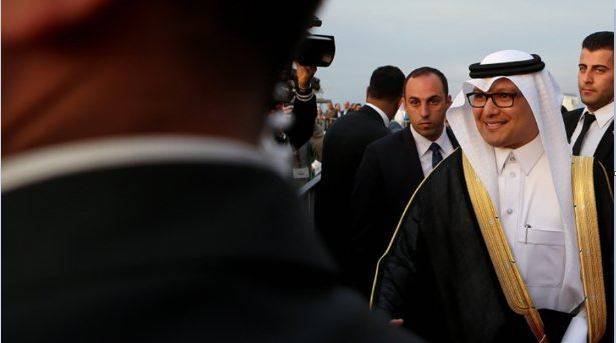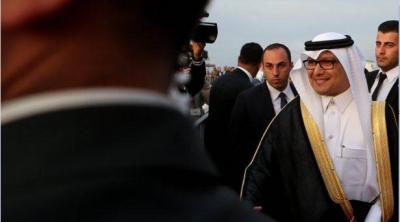As logistical and political preparations continue for the parliamentary elections, the return of Saudi Ambassador Walid Bukhari and Kuwaiti Ambassador Abdul Aal Al-Qunaie to Beirut the day before yesterday, after a five-month absence, has garnered significant attention and follow-up. There is hope that their return will lead to further steps in restoring Lebanese-Gulf relations to normalcy, following tensions caused by Hezbollah's hostile positions and interventions in the internal affairs of the Gulf Cooperation Council countries. Government sources indicated through "Anbaa" electronic news that “the government has done its best to recalibrate these relations by responding to questions relayed by the Kuwaiti Foreign Minister to Lebanese officials, which received approval from the foreign ministers of the Gulf Cooperation Council at their last meeting, leading to a recommendation to restore relations with Lebanon to normalcy.”
The sources highlighted the call made by Bukhari to President Najib Mikati, where he congratulated him on the occasion of Ramadan and invited him to an iftar event at the embassy, appreciating “Mikati’s efforts to protect Lebanon in this difficult time and restore Lebanese-Saudi relations to their normal state.” They noted that “the call was an opportunity to reaffirm the depth of Lebanon's Arab relations, and President Mikati expressed his appreciation for the Gulf and specifically Saudi step of returning the ambassadors as a precursor to fully restoring these relations."
Sources from Dar Al-Fatwa expressed their relief at the return of the Saudi and Kuwaiti ambassadors to Lebanon, hoping that “this would be a precursor to the return of all Arab ambassadors to Lebanon and that relations would return as they were in previous eras, and that Arab brothers return to their second country, Lebanon, as soon as possible.” They relayed that Ambassador Bukhari expressed his relief at returning to Lebanon and Saudi Arabia's readiness, in coordination with the French government, to provide humanitarian aid to the Lebanese and press for Lebanon to receive the required assistance from the International Monetary Fund. The same sources noted that “Bukhari assured them that Saudi Arabia would not interfere in the parliamentary elections, neither directly nor indirectly, based on the principle of non-interference in the internal affairs of any country.”
In contrast, the resistance forces and their affiliated movements continued their attempts to tighten control over the state. This was clearly reiterated by Hezbollah Secretary-General Hassan Nasrallah, who has repeatedly stated that he seeks to obtain a two-thirds majority in the parliament, with the intention of allowing Hezbollah to control all decision-making aspects of power, reaching up to the presidency. His statements and actions, along with his gathering of conflicting forces, expose the actual plan of this axis and unveil the contradictory discourse of the Free Patriotic Movement, which declares what it conceals regarding its misleading electoral agendas, as noted by opposing parliamentary sources. They pointed out that the battle has clearly shifted towards a line separating this agenda from the sovereign forces that are striving to prevent the complete collapse of Lebanon.




